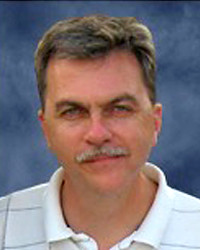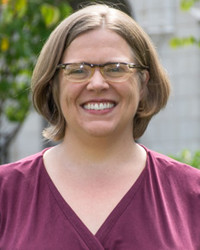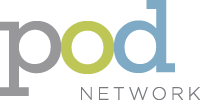2017 POD/AACU ODI REGISTRATION-FORM (PDF)
Assessing the Promise of Our Work With Scholarly Rigor, Inclusiveness, and Integrity
Tuesday, January 24, 9:00 am–5:00 pm
The 2017 Organizational Development Institute invites leaders responsible for faculty, instructional, and organizational development programs to take up the challenge of examining the good that our programs are doing, and for whom. During this day-long workshop, participants will learn a scholarly framework for assessment and use it to design an assessment plan for a program at their own institutions.
Faculty, instructional, and organizational development programs can be challenging to assess, especially when we pursue complex outcomes such as transforming pedagogies, critically examining courses and curriculum, or developing skills for engaging with diversity. Particularly when our work intersects with issues of identity, inclusion, power, and privilege, we can find it difficult even to know where to start, knowing that any attempt to assess an initiative is bound to tell only part of the story and leave us wondering who or what got left out.
These challenges are genuine, and pose real obstacles to effective, meaningful assessment of this work. And yet, without assessment, our basis for judging program quality will be limited to little more than our personal observations and confidence in our good intentions. More systematic assessment is imperative if we want to be able to credibly demonstrate (to ourselves as much as to anyone else) that we’re not just seeing what we hope to see and claiming the privilege of making decisions about programs without duly considering their effects or who benefits from them.
In other words, we need to plan for assessment with the same commitments, tools, and frameworks for inquiry that scholars bring to challenging questions. Boyer (1990) challenged the higher education community to reconsider the notion of scholarship, arguing that it is not the form of a scholar’s work which makes it scholarly, but the extent to which it is done in ways that are consistent with values and practices of scholars. Glassick, Huber, and Maeroff (1997) build on Boyer’s foundation to articulate defining characteristics of scholarly work and provide a model for examining scholarly quality.
The Organizational Development Institute applies these defining characteristics to the task of engaging in assessment in scholarly ways and provides four distinct entry points for systematically assessing programs with scholarly rigor, inclusiveness, and integrity. With ample opportunities for feedback, institute participants will be guided through the development of an action plan for critically assessing the quality and inclusiveness of either an existing or proposed program at their institution.
Institute Leaders

Wayne Jacobson
Assessment Director, Office of the Provost, University of Iowa
As campus Assessment Director, I work with departments and programs throughout the university to help identify how well the academic and support systems we have created as an institution are doing the good that we designed them to do. I work with academic departments to help them deepen their understanding of student learning in their programs, and I work with campus leaders to help them incorporate student perspectives into institutional assessment and decision-making. I also regularly teach a graduate seminar on Assessment in Higher Education and Student Affairs. Recent publications include “Assessment from an Educational Development Perspective” (with M. Wright, M. Goldswasser, and C. Dakes, forthcoming) and “Sharing Power and Privilege Through the Scholarly Practice of Assessment” (In S. Watt, Ed., 2015).

Stacy Grooters
Director of Faculty Programs, Center for Teaching Excellence, Boston College
As the CTE’s Director of Faculty Programs, my primary responsibility is to create opportunities for instructors at BC – both faculty and graduate students – to reflect together on their teaching. Whether through individual consultations, departmental workshops, or our year-long Faculty Cohort program, I and other CTE staff support instructors in meeting their goals for the classroom. Prior to joining BC in 2015, I served for eight years as the Founding Director of the Center for Teaching and Learning at Stonehill College, where I also taught in the Gender & Sexuality Studies program and chaired the Provost’s Advisory Committee on Diversity. My research interests look at the role of instructor and student identity in the classroom, as well as broader questions of diversity in higher education. My most recent publication examines the POD Network’s scholarly engagement with diversity in its publications and conferences.

